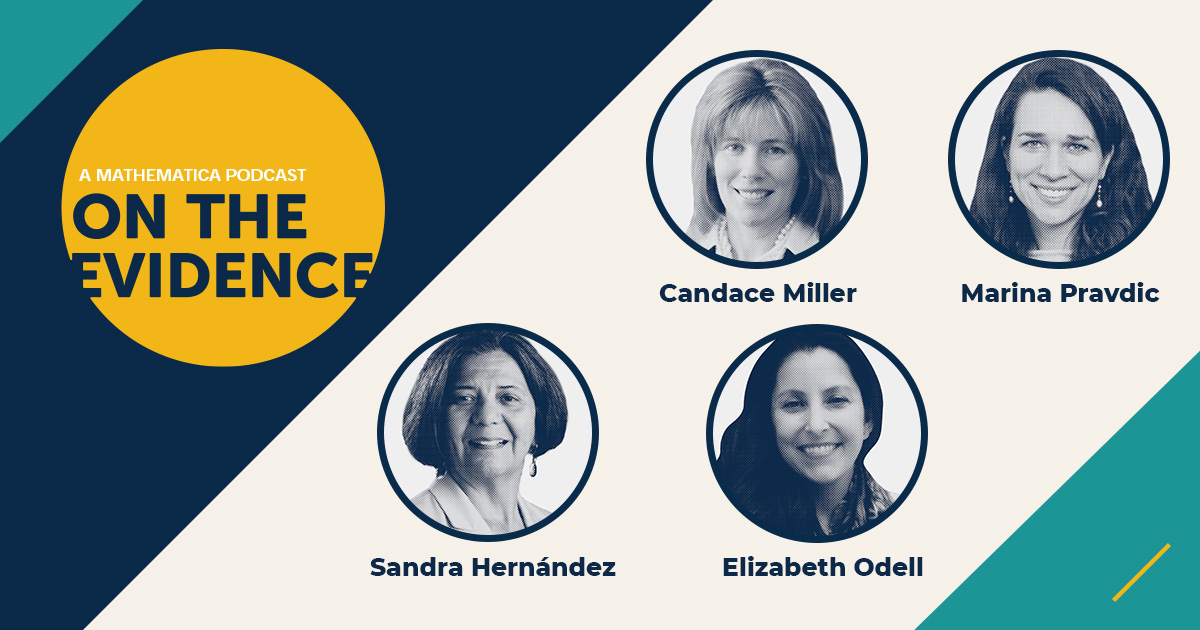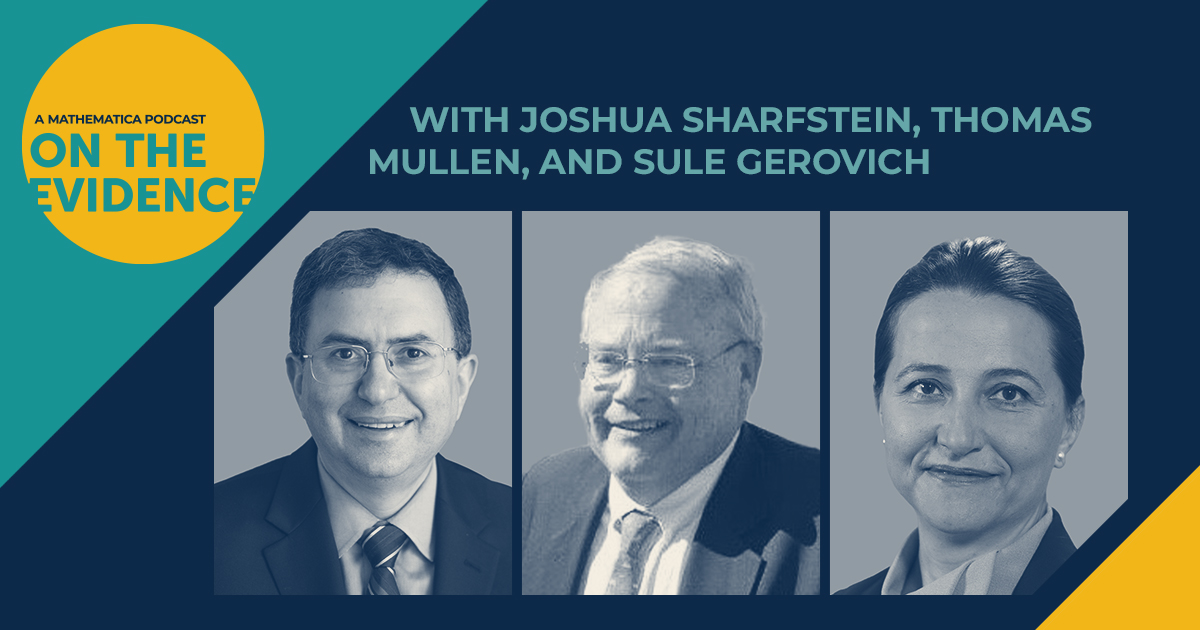As states and counties grapple with containing the spread of COVID-19, they are learning that the virus places novel demands on contact-tracing efforts. Early experiences from states with contact-tracing programs suggest that a successful program needs to account for the economic circumstances of people infected, as well as their families; it needs to account for the emotional and psychological ramifications of learning you and your loved ones are at risk of infection; and it needs to account for contextual and community factors, such as language and culture, that could be barriers to reaching the very populations most at-risk of contracting the disease.
On this episode of On the Evidence, four guests discuss emerging lessons from states and localities on conducting effective and equitable contact tracing for COVID-19. This episode is an abridged and edited version of a webinar hosted by Mathematica on August 21 featuring the following guests:
- Sandra Hernández, president and chief executive officer of the California Health Care Foundation and a former director of public health for the City and County of San Francisco
- Candace Miller, a senior researcher at Mathematica who recently became the project director for the Washington State COVID-19 Contact Tracing Partnership
- Elizabeth Odell, director of medical operations, La Clínica de La Raza Inc., a community health center that is leading local contact-tracing efforts in the East Bay area of Northern California
- Marina Pravdic, manager, communications, policy, and advocacy, The Rockefeller Foundation, which released its second national COVID-19 testing and tracing action plan in July
The wide-ranging discussion covers the following topics:
- How contact tracing for COVID-19 is different from past contact-tracing efforts for other infectious diseases;
- How a jurisdiction should measure the operational effectiveness of a contact-tracing program;
- What states and localities are doing to incorporate equity into their contact-tracing programs; and
- What role philanthropy can play in supporting contact tracing.
Listen to the full episode below.
A version of the conversation with closed captioning is also available on Mathematica’s YouTube channel here.
Want to hear more episodes of On the Evidence? Visit our podcast landing page or subscribe for future episodes on Apple Podcasts or SoundCloud.
Show notes
Mathematica’s Divya Vohra, who has been training contact tracers in California, shared reflections in a blog post about the importance of cultural humility and empathy in contact tracing to establish trust with hard-to-reach populations, especially people of color and immigrant communities.
Candace Miller appeared as a guest on an earlier episode of On the Evidence, where she talked about her experience with contact-tracing programs.



